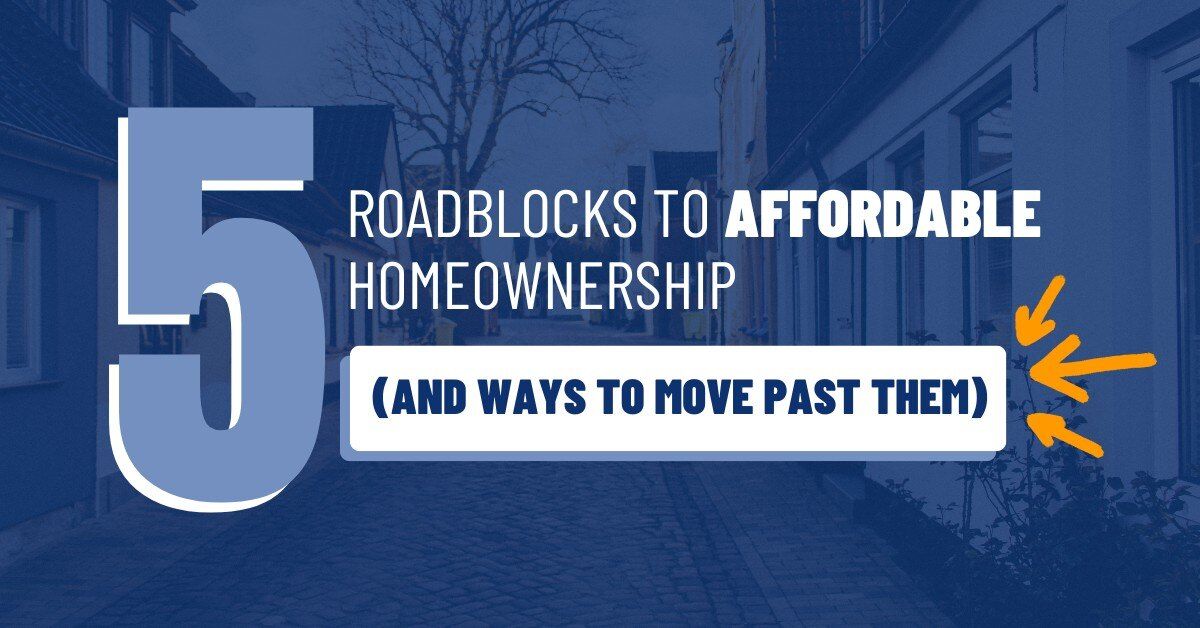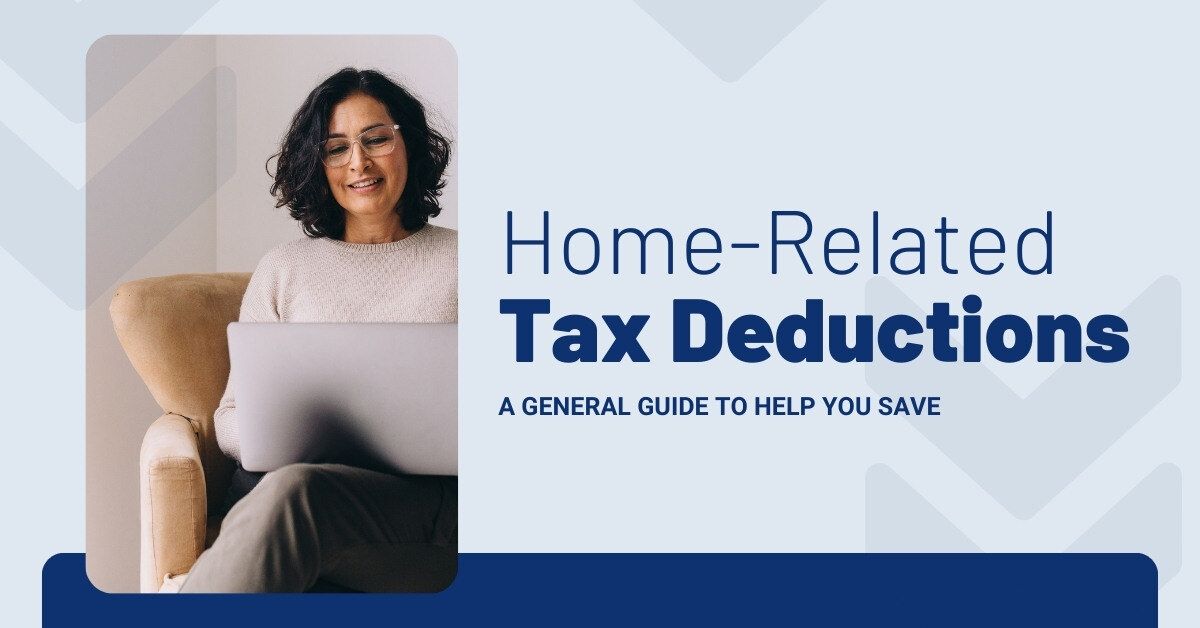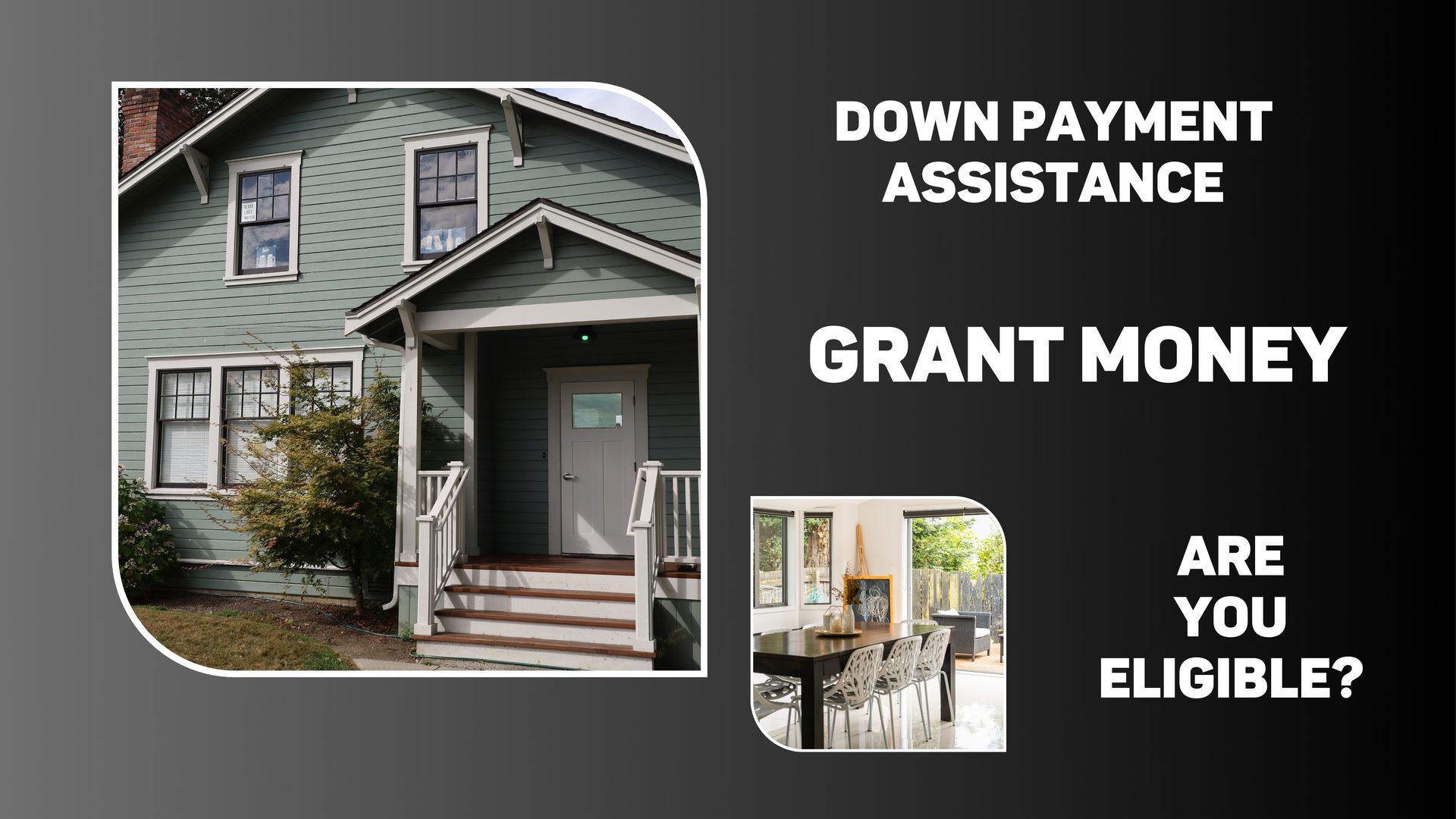
How to Become a Homeowner on a First-Time Buyer's Budget
How to Publish an Article On LinkedIn
Download the LinkedIn image and save it to your computer.
Sign into your LinkedIn profile.
Select “Write an Article.”
Click the large header image (looks like two pictures connected by a plus sign) and select the LinkedIn image file.
Click “Open.”
Copy and paste the Headline of the article below into the space that says “Headline.”
Copy and paste the body of the article below into the space that says “Write here…”
Review the article and tweak as necessary. You may need to delete excess line spaces, fix formatting, add image links, etc.
Hit “Publish” at the top right corner of your screen. When prompted, type a description of the article and include relevant hashtags.
(Use with “LinkedIn Image,” “LinkedIn Post,” and “Social Media Posts” from the zip file)
How to Become a Homeowner on a First-Time Buyer’s Budget
It's not easy being a first-time homebuyer right now. At the end of last year, housing affordability hit an all-time low.[1] Additionally, mortgage rates have risen significantly since 2021, while inventory remains tight for many property categories, but especially for starter homes.[2]
As a result, many first-time homebuyers are finding that they need to get creative or risk renting for longer than they planned. If you, too, are struggling to afford homeownership, here are some workarounds to consider as you plot your first home purchase.
1. Try House Hacking
“House hacking” is a real estate investment strategy in which participants use their homes to generate income in order to offset their expenditures. For example, renting out a basement apartment or taking on a roommate.
In some cases, house hacking may make it possible for you to qualify for and afford your first home. A lender, for example, may approve you for a larger mortgage if you purchase a property with immediate income potential.[3] It could also help you pay your mortgage once you move in. For example, you could rent out your swimming pool for a few hours or lease out your garage for paid parking.
But before you make plans to house hack, make sure you fully understand an area's laws and HOA rules. We can help you find a home with income potential in a neighborhood with less restrictive zoning and regulations.
2. Team Up With Friends or Family
If you aren't wild about the idea of welcoming strangers to your home, you may want to consider co-purchasing with a friend or family member instead. This unconventional housing arrangement is growing in popularity as a way to cope with higher costs.[4]
By pooling resources, you may be able to buy a home that's larger or has more investment potential. On the other hand, sharing a big financial responsibility, like a mortgage, with friends or family could get messy—especially if you don't create a clear-cut co-ownership agreement beforehand that outlines mutual expectations. We can help you set priorities and search for a suitable property that works for all parties.
3. Tap Your Network for Help With Funding
Another established method for affording a first home is to lean on family or friends for financial help. According to a recent YouGov poll, more than a third of homeowners (and a whopping 79% of those under 30) received financial help from their parents when buying their first home.[5] So you wouldn't be the only one leaning on loved ones to afford a home at today's prices.
Just be sure your benefactors are giving a gift, not a loan, and are willing to put that in writing. A lender will want proof that the money isn't adding to your debt burden. Another way to tap your network is to crowdfund part of your down payment. For example, if you're getting married soon, you could skip the wedding gift registry and ask guests to contribute funds to your hoped-for home purchase instead.
4. Look to Other Unconventional Money Sources
You could also cut some of your costs by applying for grants and assistance. There are public and private grants and down payment assistance programs that are expressly intended to help first-time buyers, although most have income limitations.[6] Or, if you have enough income to support a house payment but can't spare much cash for your down payment, you may qualify for a government-sponsored loan, such as an FHA loan that allows you to put down as little as 3.5% to 10%.[7]
We can connect you with a lender or mortgage broker who can educate you about your options and help shepherd you through the process. And, in some cases, we can help you negotiate seller concessions—like money toward closing costs or mortgage points—that will make your home purchase more affordable.
5. Expand Your Home Search
If you’re having trouble finding a home within your budget, consider broadening your search criteria. You may be surprised by the kinds of deals that are available when you're willing to compromise on things like neighborhood, square footage, and cosmetic features.
Keep in mind, starter homes are rarely forever homes, but merely a first step onto the property ladder. By gaining a foothold in the real estate market now, you can set yourself up to afford a more expensive property in the future. According to the National Association of Realtors, in 2021, the net worth of a typical homeowner was $300,000, while that of a renter was only $8,000.[8] We can help you find an affordable first home so you can start building equity to reach your long-term financial and real estate goals.
YOU CAN DO IT—AND WE CAN HELP
Buying a first home is challenging, but it's not impossible—especially when you have a savvy real estate professional in your corner. We will work with you to devise a plan to overcome your financial constraints. Then, we’ll help you find a home that not only excites you but also fits your budget and lifestyle. Give us a call to get started with a free exploratory consultation.
The above references an opinion and is for informational purposes only. It is not intended to be financial, legal, or tax advice. Consult the appropriate professionals for advice regarding your individual needs.
Sources:
Housing Wire - https://www.housingwire.com/articles/housing-affordability-ends-2022-at-record-low/
Realtor.com - https://www.realtor.com/news/trends/death-of-the-starter-home-where-have-all-the-small-houses-gone/
ValuePenguin - https://www.valuepenguin.com/mortgages/claiming-rental-income-for-mortgage
National Association of Realtors - https://www.nar.realtor/research-and-statistics/research-reports/highlights-from-the-profile-of-home-buyers-and-sellers
YouGov - https://today.yougov.com/topics/economy/articles-reports/2022/05/25/american-homebuyers-finanancial-help-parents
Bankrate - https://www.bankrate.com/mortgages/first-time-homebuyer-grants/#types
Investopedia - https://www.investopedia.com/terms/f/fhaloan.asp
National Association of Realtors - https://www.nar.realtor/sites/default/files/documents/2022-snapshot-of-race-and-home-buying-in-the-us-04-26-2022.pdf




